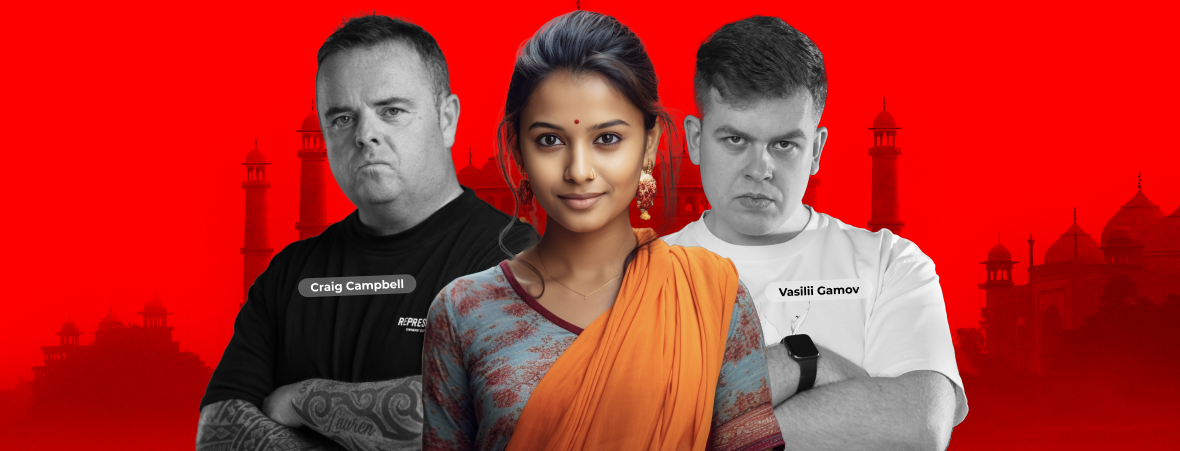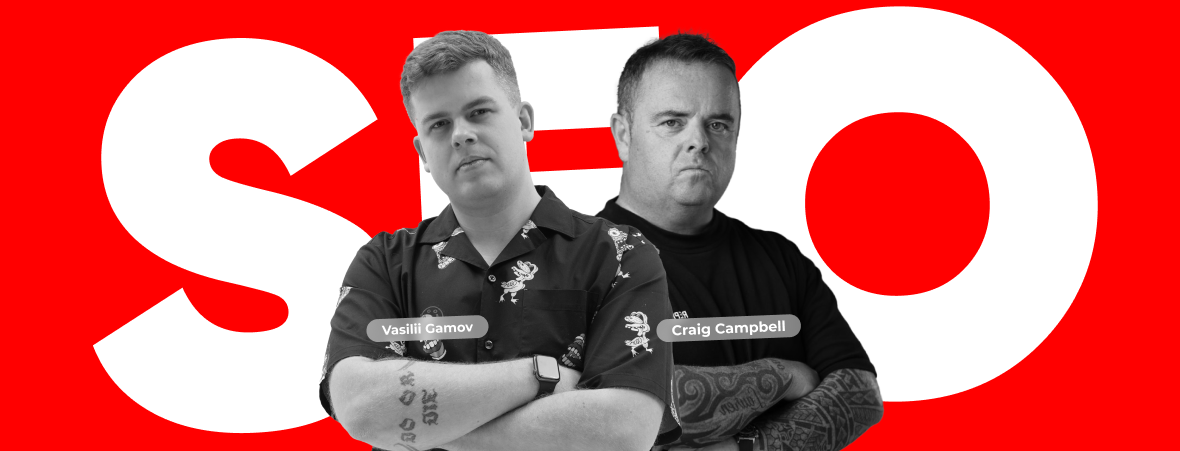In 2025 SEO optimization remains a cornerstone for any business looking to enhance their online presence and drive growth.
In a recent episode of the Peaky Ads podcast, industry experts Sean Bianco, co-founder of the SEO agency GainChanger, and Vasilii Gamov, CEO at Peaky Ads, discuss the future of SEO optimization strategies in detail and share all their knowledge with the viewers!
In the article we’ll highlight the juiciest insights, from SEO goals establishment, ROI evaluation, user experience importance to SEO teams scaling as well as ways to adapt to the changing SEO landscape!
SEO Strategies vs Business Objectives: How to Make Them Match?
Obviously, the basics of any successful SEO strategy is ensuring it’s aligned with your business goals.
Sean stresses that businesses often fail to scale because they don’t have a clear connection between their SEO and their broader business objectives.
Sean classifies goals into three broad categories
- Creating ROI. If earning more money is your primary goal, then your SEO needs to work toward that directly. It’s not about traffic but rather how much traffic can be sold.
- Grabbing your market share. In highly competitive markets, the goal should be to rank for as many terms as possible. This approach helps increase your presence and dominate the market.
- Protecting your brand. SEO isn’t only about acquiring new customers. It’s also about maintaining your brand reputation. By being ranked for your brand-related terms, you can ensure your reputation stays positive on every search engine.
Sean highlights that If you’re looking to generate ROI, how would you even start to get business people on board if you can’t translate the work into money.
Having these three types of goals in mind allows companies to create SEO strategies that work and last.
Measuring ROI in SEO: Data-Driven Approach
So, how do experts view measuring ROI in SEO? Sean and Vasilii agree that in-depth analysis rocks. It’s not just a question of tracking traffic, but the understanding of the entire customer process.
By focusing on metrics like customer lifetime value (CLTV) and customer acquisition cost (CAC), businesses are able to quantify the true impact of their SEO work.
For instance, in industries like iGaming, businesses should analyze:
- The value of each individual customer over time (CLTV)
- How much does it cost to win each customer (CAC)
- How well traffic converts at various stages of the funnel (e.g., registration, deposit, retention).
This approach gives companies a clearer understanding of their ROI so that they can understand how SEO directly translates into revenue.
Sean finalizes this approach by saying that when you’re measuring ROI, you need to measure how much value traffic actually brings to your business.
Best Ways to Adapt to SEO’s Chaotic Landscape
The SEO landscape has become more chaotic, with algorithm updates and online marketing strategies occurring all the time.
Sean believes that in order to stay ahead, businesses must be responsive. Traditional SEO methods – like creating good content and building backlinks – are no longer working in highly competitive markets.
When such scenarios occur, Sean recommends businesses attempt other methods, i.e., parasite SEO or traffic manipulation, for the expansion. They are controversial but effective if done in the right context and ethical usage.
Parasite SEO.
This includes the employment of third-party websites to achieve quicker rankings. Peaky Ads team already has a podcast on this type of SEO, check it out here!
Traffic Manipulation.
It involves mimicking real user signals through different methodologies, such as PR efforts or paid listings to enhance rankings.
Sean explains that If you’re not coming with something new these days, then you’re battling in the old-school manner.
As the world of SEO evolves, businesses have to adapt and find faster ways to get things done.
AI and Tools for SEO: Top Practices
While AI tools and software can be incredibly useful in scaling SEO operations, Sean emphasizes the importance of a structured and solid process. It’s not about what tools you use, but how you use them.
- Notion, for instance, has been a critical tool in simplifying SEO tasks, automating workflows, and tracking progress.
- Yet AI tools like ChatGPT, Perplexity, and others are not what one should solely focus on. The key to success lies in building scalable systems that leverage these tools to automate tasks that are repetitive in nature and make data-driven decisions.
- Sean wants businesses to focus on building strong SOPs (Standard Operating Procedures) that can be applied to different projects and tasks.
Both speakers agree that by defining clear, scalable processes, businesses can streamline operations, boost productivity, and reduce manual effort.
How to Scale SEO Teams the Right Way?
The larger the company grows, the more important it is to have an even bigger team. But adding team size doesn’t always equal efficiency.
Sean’s approach to scaling SEO teams is to systematize and outsource as much as possible. This makes the internal teams lean but also gives the ability to do more work.
Instead of hiring more individuals to perform routine tasks, Sean is a proponent of writing good SOPs that ensure processes are efficient, and work gets done fast, even if outsourced. This keeps overheads low while growing rapidly.
He explains that the more processes you have, the more tests you have running, the faster you manage to implement those tests. By eliminating redundancy and outsourcing non-core activities, businesses are able to magnify their SEO campaigns without swelling costs.
Is User Experience that Crucial for SEO?
Yes, now Google’s algorithms are increasingly prioritizing user experience (UX). Metrics like dwell time, bounce rate, and page loading are all important SEO ranking signals.
Sean’s emphasizes that SEO is no longer about keyword stuffing and backlinking. It’s about creating a seamless, usable experience that can retain users on your site for longer periods of time.
Texts must not only be composed well but also engaging and beneficial to the users. Remember that websites covering these aspects have the potential to rank high in search results!
Conclusion
Sean’s final thought summarizes the key to success in SEO: Fail fast, fail often, and learn from your mistakes.
SEO is an ongoing process of learning, adapting, and innovating. Businesses that are able to experiment quickly with new methods, embrace failure as a part of advancement, and continue to refine their processes will be the ones that succeed in 2025 and beyond.
Stay tuned, subscribe to Peaky Ads YouTube channel for more thoughtful insights to learn all about the latest marketing trends and take your business to the next level!









